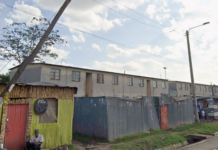Kenya’s private sector economy weakened further in June, with business conditions deteriorating at the fastest pace in nearly a year, according to the latest Purchasing Managers’ Index (PMI) survey by Stanbic Bank and S&P Global.
The PMI slipped to 48.6 in June, down from 49.6 in May, marking the second consecutive month below the neutral 50.0 mark.
A reading below 50 indicates a contraction in business activity. This latest figure reflects the sharpest downturn in business conditions since July 2024.
The contraction was largely driven by a significant drop in output and new orders. Many firms cited reduced consumer spending, economic uncertainty, and disruptions linked to nationwide protests.
Over a third of surveyed companies reported a decline in new business, compared to just 20% that saw improvements.
Despite these challenges, there were some signs of resilience. Business confidence improved markedly, reaching its highest level since May 2024.
Around 18% of firms said they expected to increase output in the coming year, encouraged by potential market expansion and stronger sales.
Employment rose slightly for a fifth straight month, while vendor performance improved notably, with delivery times shortening at the fastest rate in nearly two years due to reduced congestion and competitive pressures.
Price pressures also mounted in June, with input costs rising at their fastest pace since January, driven by higher wages. However, the overall inflation remained within historical averages, and output price increases were modest as firms remained cautious about passing costs to consumers.
Inventory levels rose sharply, suggesting some businesses are stockpiling in anticipation of future demand. Nonetheless, purchasing activity continued to decline — the steepest fall in nearly a year — reflecting caution amid softer sales.
Data for the June PMI was collected between 12 and 26 June 2025.



















